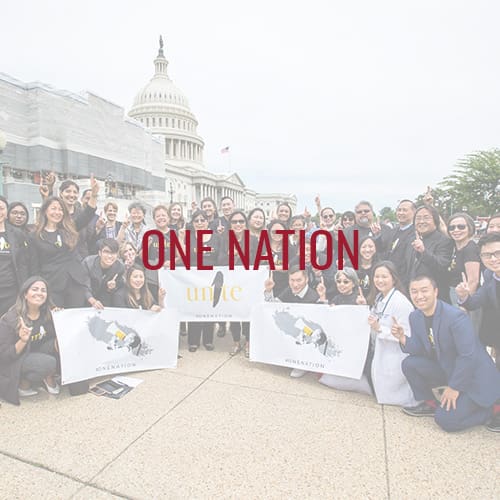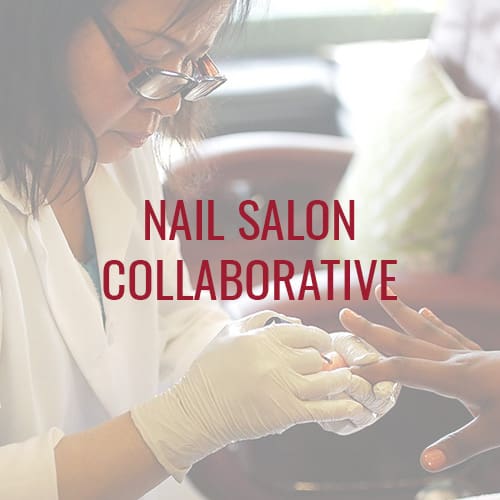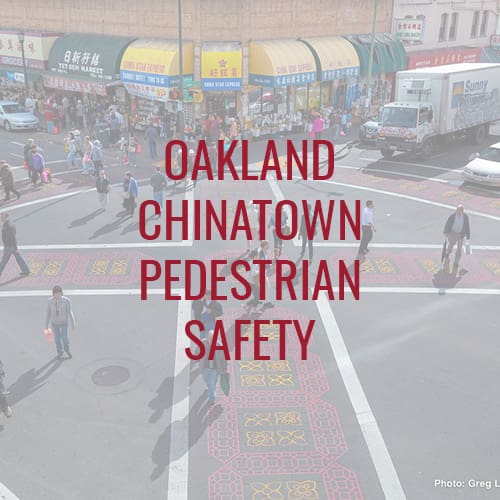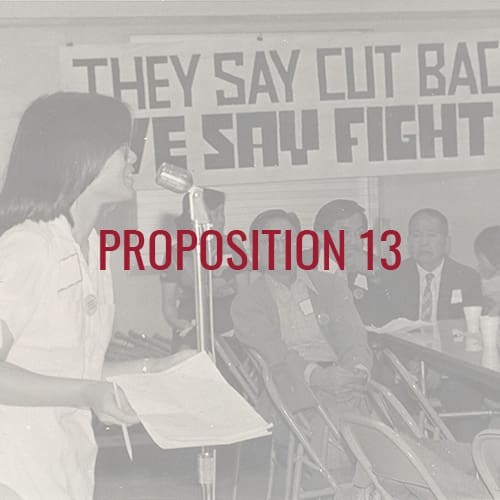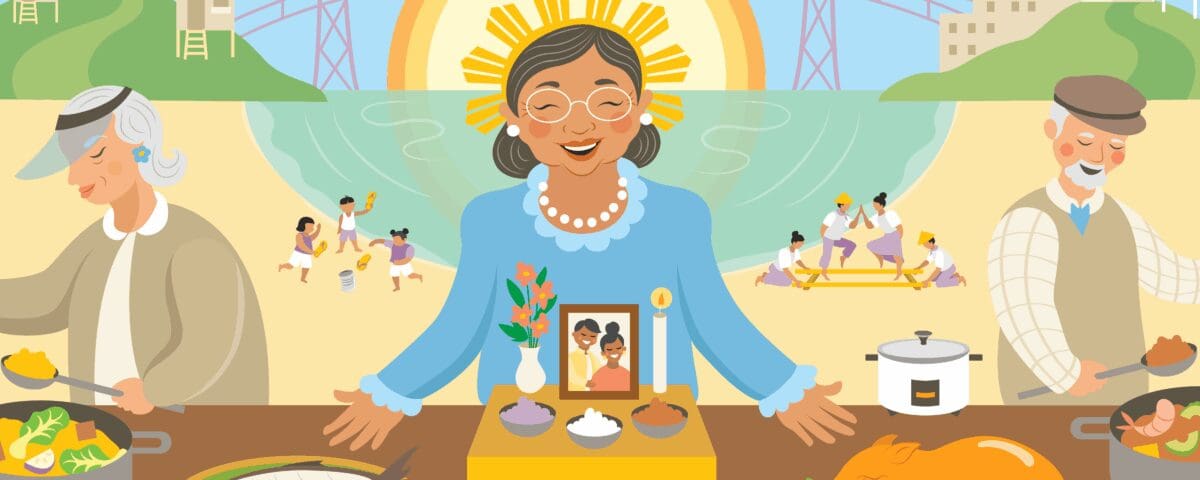
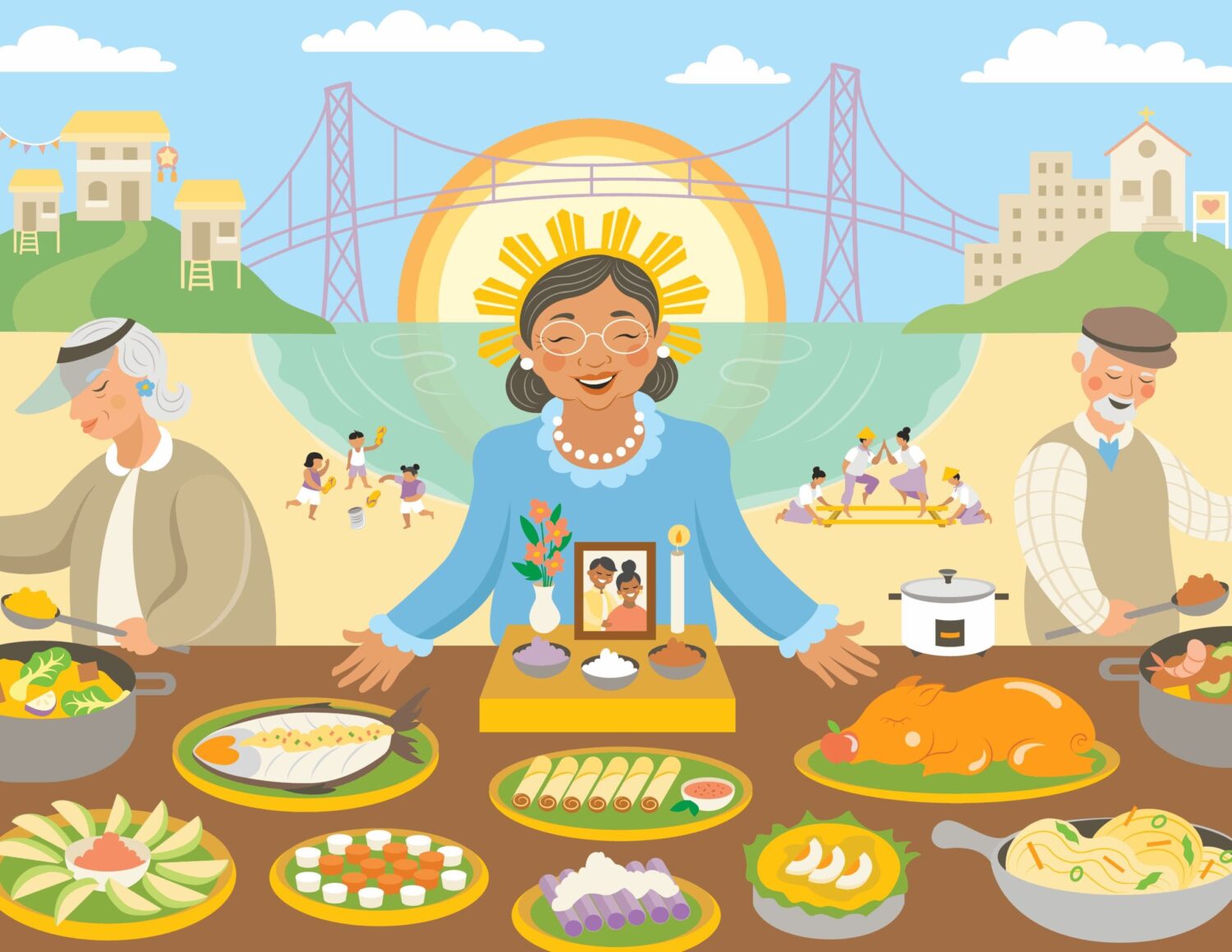
Estela
Estela grew up in the Philippines surrounded by a large, close-knit family. Since moving to Alameda to be closer to her daughter and siblings, she has found joy in volunteering in the community, cooking for her loved ones, and honoring her Filipina heritage and faith.
ROOTS & BEGINNINGS
Interviewer: What are your favorite memories of growing up in the Philippines?
Estela: My favorite memories growing up is the time that I spend with my siblings. I have four sisters and four brothers, and we are strongly bonded family.
Interviewer: Where in the Philippines did you go?
Estela: I was born in Balaranyaki—before it was Rizal, now it’s in Metro Manila.
Interviewer: Can you describe your home and neighborhood growing up?
Estela: It was a small neighborhood where everyone knew each other. Our house was located right in the middle of the neighborhood, so we pretty much knew everybody. Our neighbors were like our second family. There was great camaraderie and support. There were challenges financially, but it was mostly fun growing up because we had great support.
Interviewer: What was your experience coming to America?
Estela: I didn’t move until 2009 while my siblings were here since 1970s. I was able to move here through my daughter’s petition after she earned her citizenship, having family already here made the transition a lot easier for me.
Interviewer: What experience made you feel a sense of community in America?
Estela: There is a relatively big Asian community here in Bay Area that definitely helped me settle in Alameda. I live near a senior center where I worked and volunteered for so many years. I was able to form friendships, and it is just wonderful.
AHS & HEALTH
Interviewer: What does having good health mean to you?
Estela: Oh, good health means being able to enjoy life without pain, not just the body, but mind and spirit, and it means I can be genuinely happy to do the things I enjoy.
Interviewer: How did Asian Health Services help in maintaining good health or your healing process?
Estela: Asian Health Services help me by ensuring that I have good support for my medical needs. It can be avoided as we grow old that there are conditions that will start to surface, like diabetes and hypertension, and Asian Health has also has always been there to make sure I can help manage those conditions so I can live healthier longer.
Interviewer: How did you first discover Asian Health Services?
Estela: I think it was through referral from friends and relatives.
Interviewer: Do you know why they referred Asian Health Services? Are they also coming?
Estela: They also, they also come here, and also a member of these Asian Health Services.
Interviewer: In what ways has Asian Health Services supported you?
Estela: You help support me, mostly with all my medical needs.
Interviewer: How did having health care and support services in Tagalog in America make you feel?
Estela: I’m just grateful that health health care and support services are available for me here in Asian Health Services, and it is comprehensive and definitely helps me stay healthy so I can enjoy more years of living.
Interviewer: What is it like being part of our patient Leadership Committee?
Estela: Oh, I love it. I want to help and I want to join every committee that I can be of help.
Interviewer: What is one health advice you follow that was taught to you by your elders?
Estela: Listen to your body. It has ways of telling us if something is wrong, if you are tired, get dressed and also. You have to if something doesn’t look or feel right, seek personal help.
Interviewer: You used to live in the Philippines. How was healthcare different?
Estela: Oh, it’s very different. We don’t have healthcare, health insurance. If you don’t have money to go to the hospital for an emergency, you will not be accepted. If you have no money for what do you call that? For your admission you have to pay.
Interviewer: Yeah, there’s a fee that you should pay. So how has it been now, being able to see health care here?
Estela: Oh, it’s very, very good. Now you can feel as if nothing happens to you, because when you go to the hospital, you will be accepted right away.
Interviewer: And how is it being able to receive care at Asian Health Services like checkups and doctors appointments, and being able to also have providers or staff that speak Tagalog?
Estela: Oh, they’re so good. Some nice people. They give you anything you want. They answer everything that needs to be answered. Yeah, they are so nice.
COOKING & CELEBRATION
Interviewer: Was there any celebration or holiday in the Philippines that you liked that was your favorite to celebrate?
Estela: Christmas, New Year. That’s it. Feast Day of the Saints.
Interviewer: What was it like? What was it like? A big community celebration? Was it more with your family?
Estela: A big celebration is the Fiesta of Santa Rita de Cassia, our patron saint. And then in the end, Christmas, it’s for family only.
Interviewer: What did the Fiesta look like? Was it there’s a neighborhood, or the neighborhood, and then we go to church, and then there’s dancing, there’s a concert that’s it in the when it’s there’s a face feast day of the scene.
Interviewer: I know you said that they bring the Chon. Are there other foods that they bring or they serve?
Estela: Oh, chicken, like menudo, lumpia, bibingka.
Interviewer: Do you like to cook?
Estela: Oh, I love to cook.
Interviewer: Can you give us one of your favorite things to make for comfort?
Estela: Comfort food, lumpia, yeah.
Interviewer: Do you hand make them? Do you do the filling and everything yourself?
Estela: Yeah, yeah. I made it.
Interviewer: How do you make the filling?
Estela: The filling is a ground pork with onion, garlic, pepper, Salt, like I forgot, and then the senior moment you and then the egg to pour, what to cat, no, to make it stick together. And then the wrapper, yeah, you have to mix them and then wrap it. And also the puto.
Interviewer: How do you make puto?
Estela: Oh, there’s already mix, puto mix. Oh, I put it in the smaller container, then steam, nice. I love to cook. See. Oh, I have a bird in the oven, I get a bird and I give it to the church because we have some hospitality.
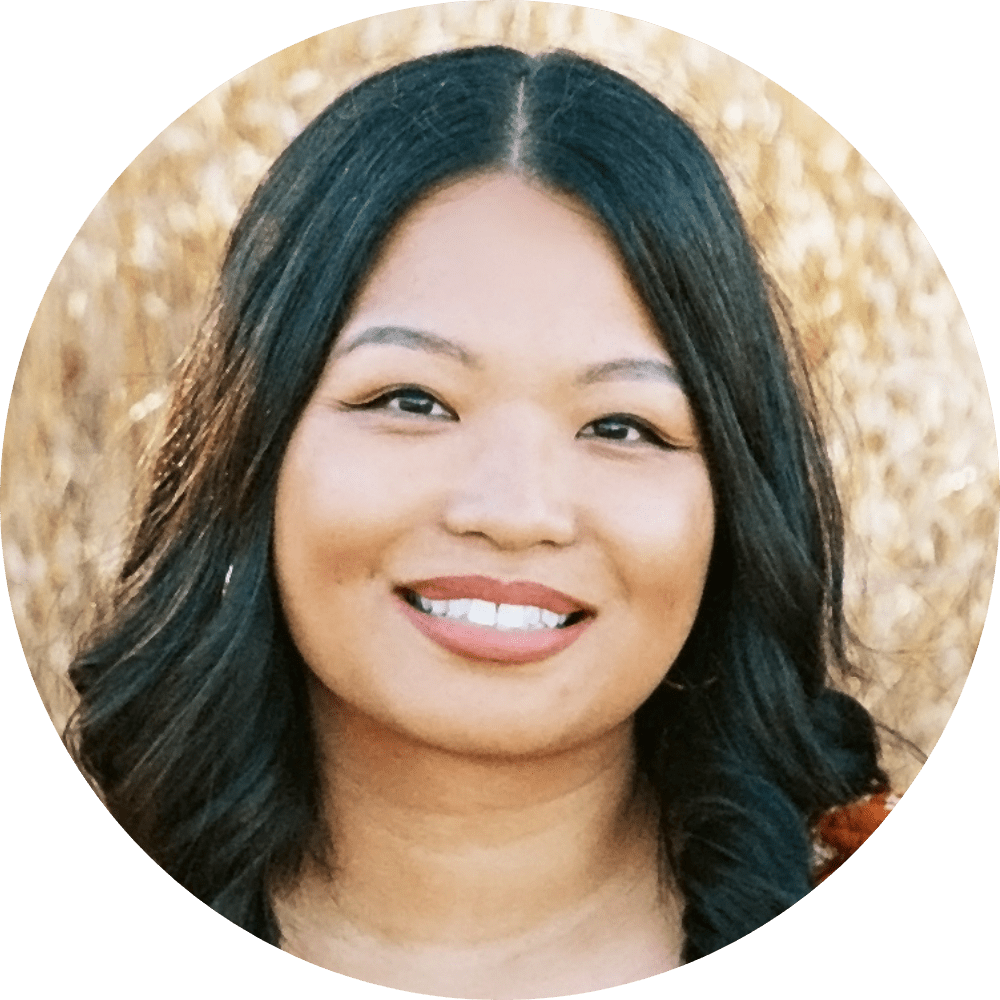
Ruby Castro
Ruby is a Filipina American artist and designer from the Bay Area.

